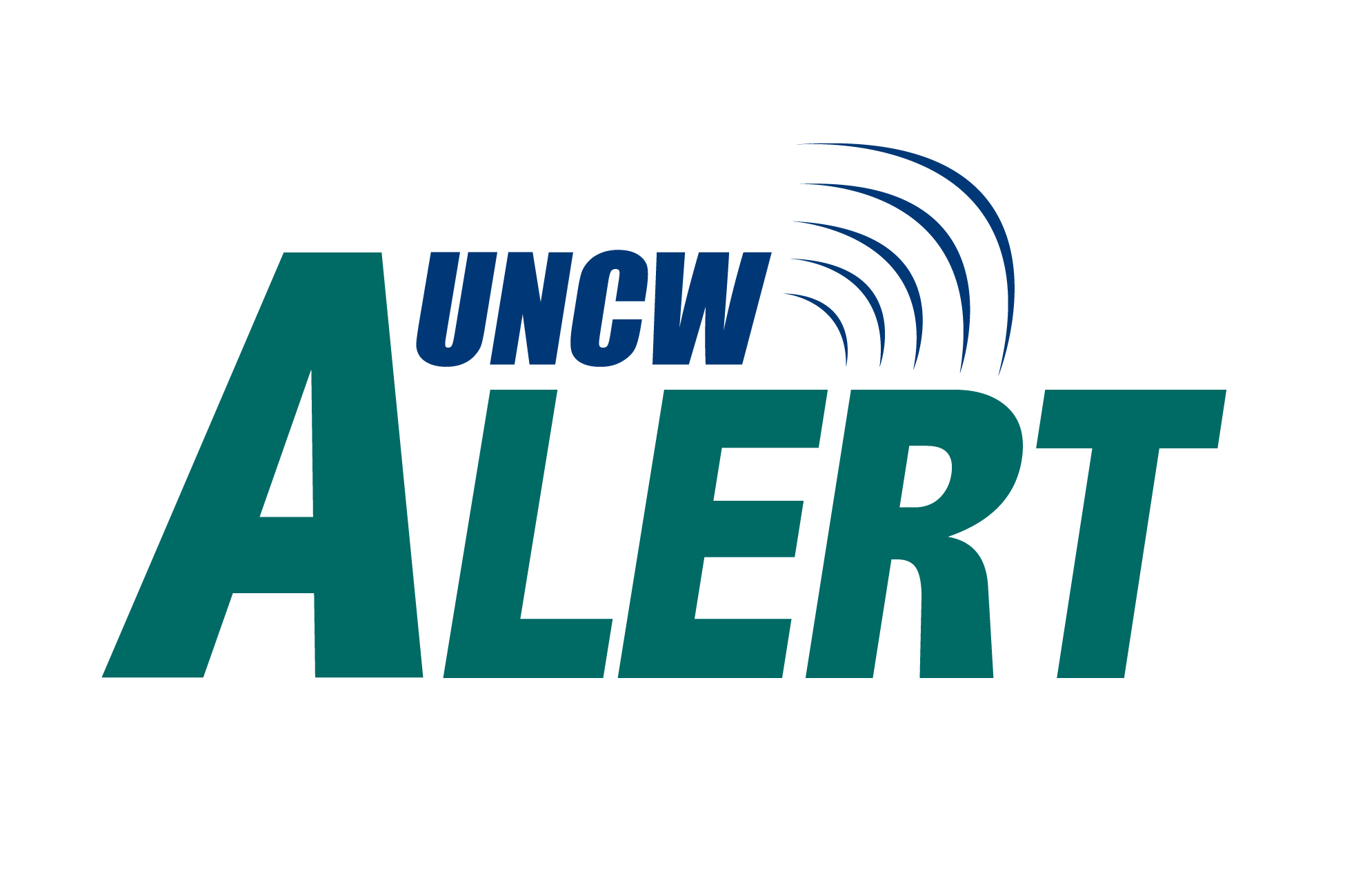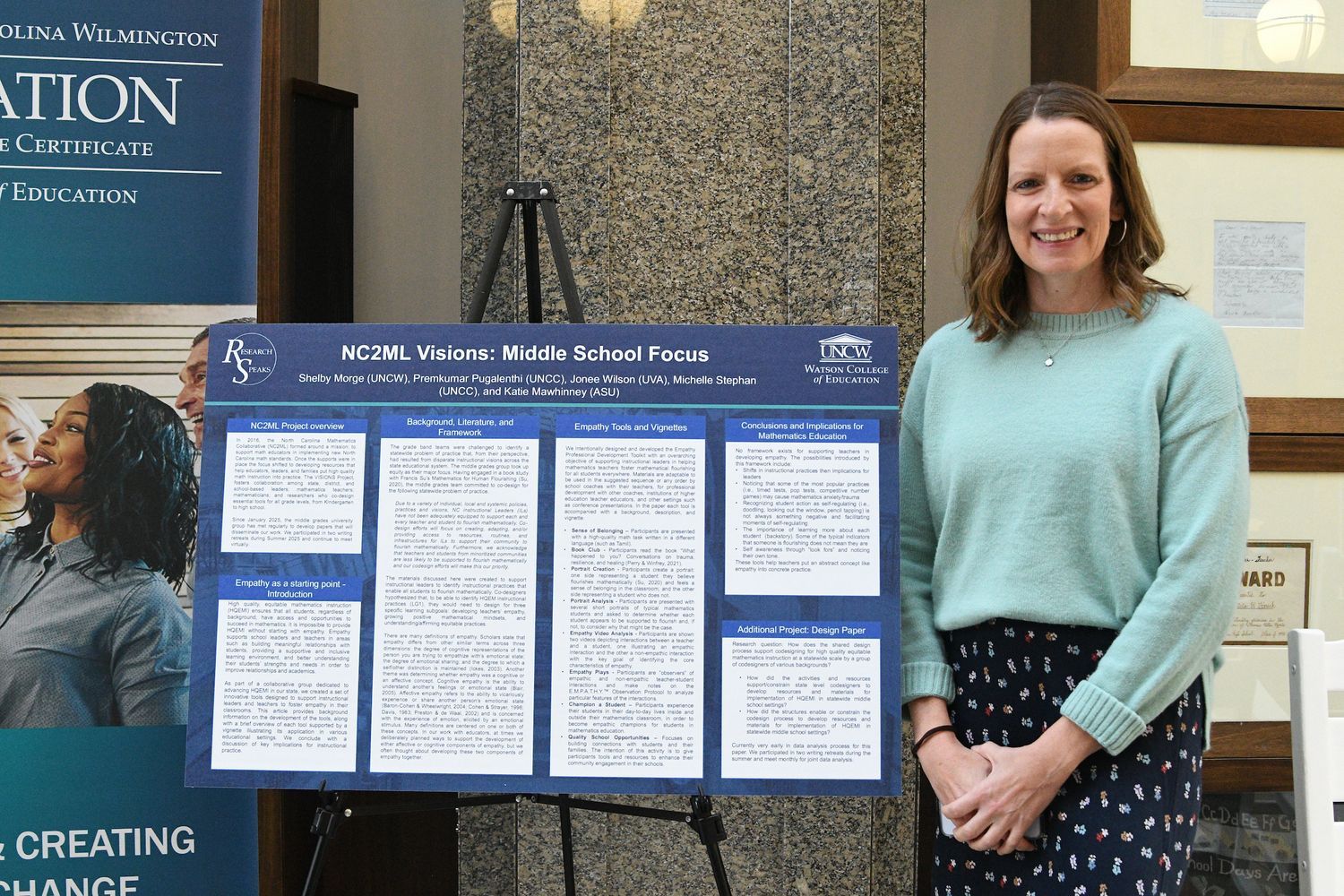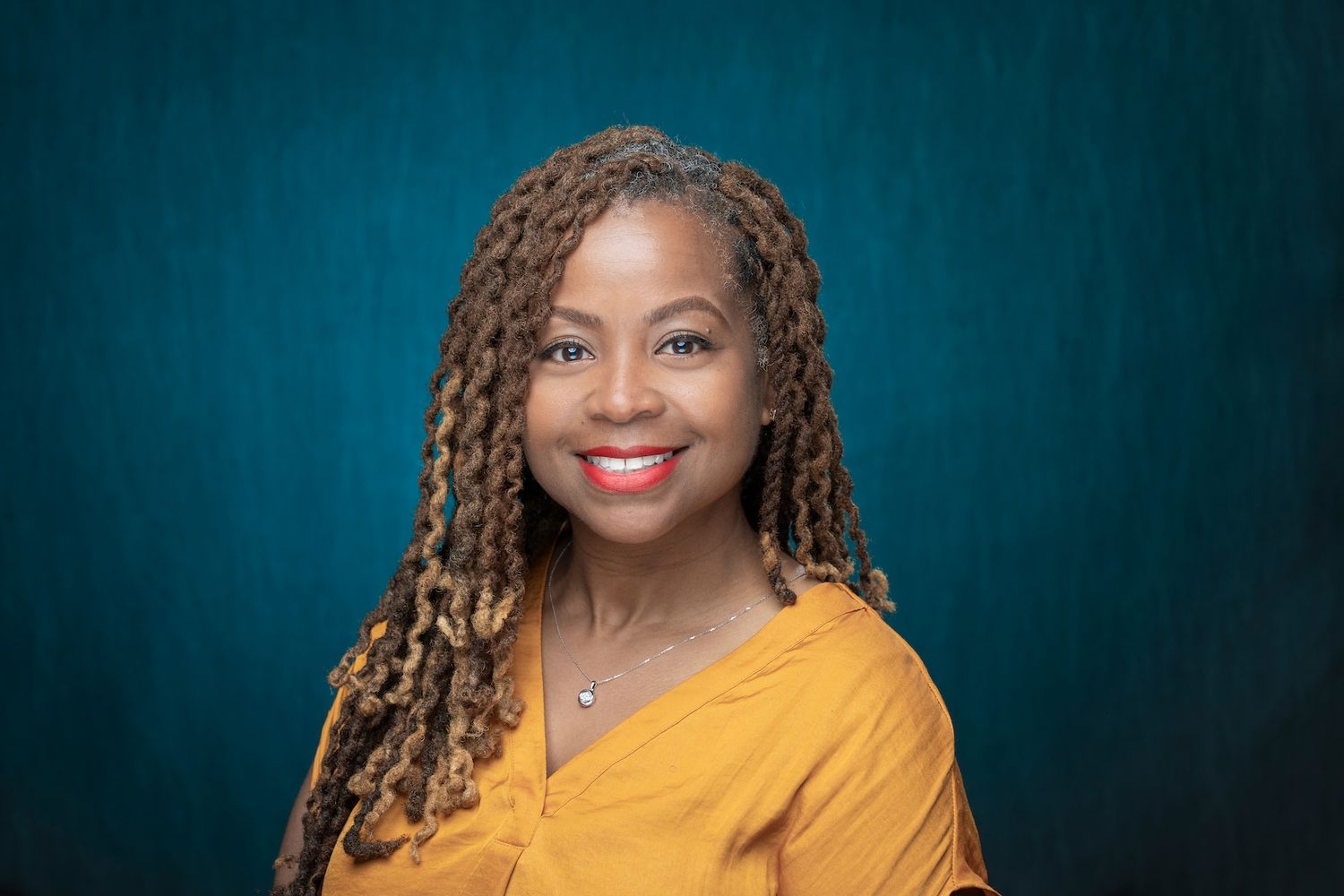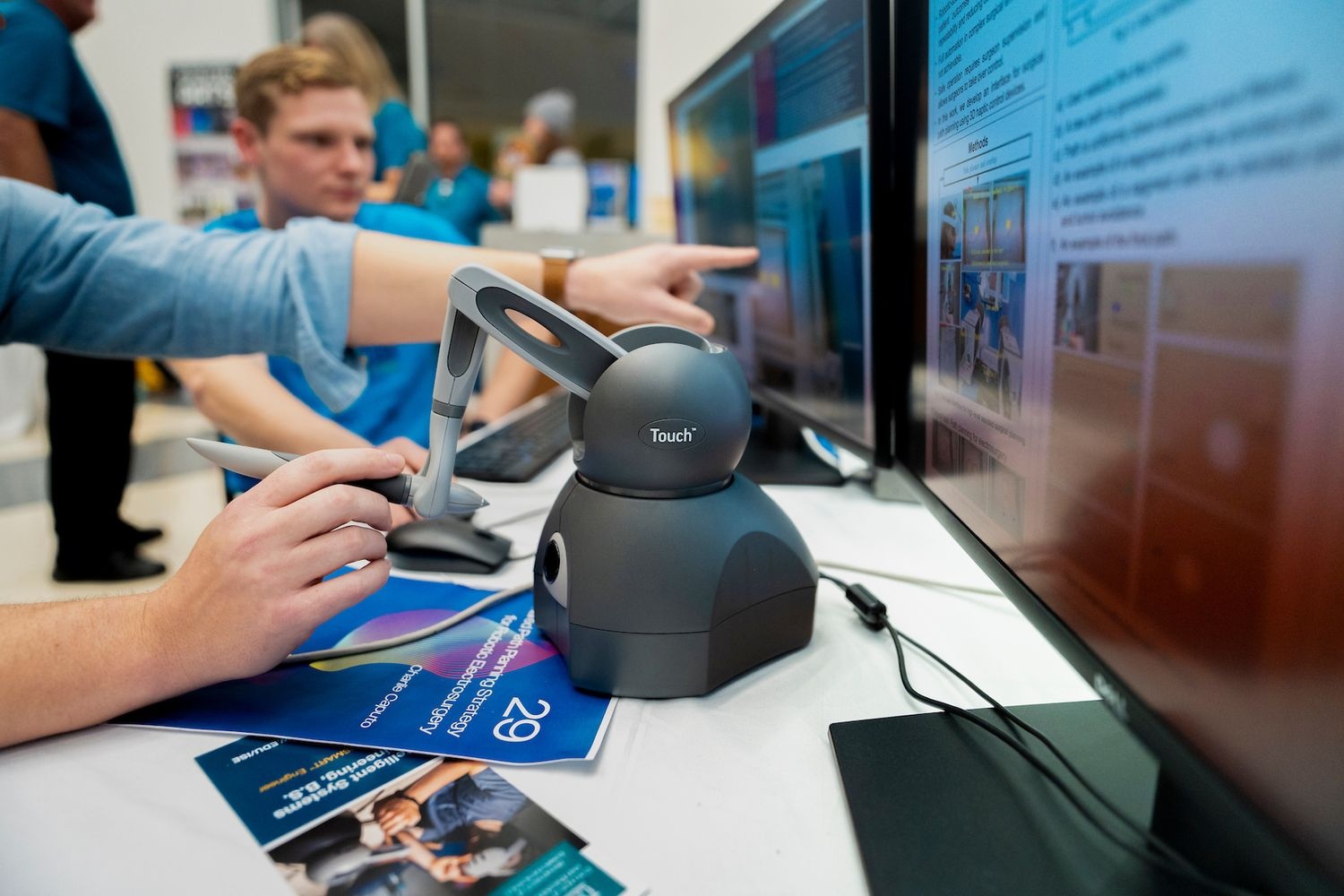News
Recent Posts
Lilit Martirosyan Advocates for Mathematics Research on Capitol Hill
Lilit Martirosyan, associate professor of mathematics at UNCW, recently traveled to Washington, D.C. to represent the mathematics community...
UNCW Partnership Brings Safe Fish to Families in Need
Each week, UNCW raised small-grade black sea bass are taken to Zora’s Seafood Market in WIlmington, NC, where families can pick them up...
UNCW Announces 2026 Alumni Association Distinguished Award Honorees
UNC Wilmington has announced the newest recipients of the Alumni Association Distinguished Awards, which honor graduates whose exceptional...
Message from Chancellor: Homecoming & Campus Happenings
From brunches to basketball, TEALgate to the ACE Homecoming Kickoff, Homecoming is a time to build connections, celebrate...
UNCW Breaks Ground on New Residence Hall
UNCW campus leaders and students gathered for the groundbreaking of a new residence hall that will house more than 500 students.
A Message from the Chancellor
Michael Wilhelm's leadership expanded UNCW’s international partnerships, strengthened our global engagement and opened doors for...
Message From SafeZone: Classes, Campus Return to Normal Wednesday
UNCW will resume normal operations Wed., Feb. 4 at 7 a.m. Use caution on campus. If weather prevents safe travel, students should contact...
UNCW to Resume Normal Operations Wednesday, Feb. 4
UNCW will reopen on Wednesday, Feb. 4 at 7 a.m., when the university will resume normal operations for classes, activities and events.
Message From SafeZone: UNCW Weather Update: Closed Tuesday
Based on winter weather conditions and NWS forecasts, UNCW will remain closed and classes, activities and events are cancelled through Tuesday,...
Winter Weather Update: UNCW Remains Closed through Tuesday
Based on winter weather conditions and forecasts from the National Weather Service in Wilmington, UNCW will...
Winter Weather Update: Stay Safe, Enjoy Snow Days
A university update about classes and operations on Tuesday will be sent by noon (12 p.m.) Monday unless conditions warrant earlier...
Winter Weather Safety Tips for Students
Please take a moment to review these quick tips to help you stay safe and prepared during severe winter weather.
Winter Weather Update: UNCW Will Close Jan. 31-Feb. 2
UNCW will be closed Saturday-Monday (Jan. 31-Feb. 2). Classes are cancelled Saturday-Monday.
UNCW AI Leader Joins U.S. Delegation to UAE
Karl Ricanek Jr., professor of computer science and engineering and an internationally recognized leader in artificial intelligence (AI), has been...
Message From SafeZone: UNCW Continues to Track Winter Weather
UNCW continues to monitor winter weather conditions for the weekend. Currently no changes to Friday’s schedule. Stay alert for updates via...
UNCW Continues to Monitor Winter Weather Jan. 30-Feb. 1
University Continues to Monitor Winter Weather
Message From SafeZone: UNCW Monitoring Winter Weather
UNCW is monitoring winter weather Jan. 30-Feb.1. Snow is possible. Stay alert for updates via UNCW Alert, UNCW Mobile, and campus email. For...
UNCW Monitoring Winter Weather Jan. 30-Feb. 1
Winter weather conditions may affect areas in and around Wilmington this weekend, Jan. 30-Feb. 1.
Keith, Barreto Join Inaugural AI Leadership Network
Professor Julian Keith and Associate Professor Daisyane Barreto will represent UNCW in the newly created CAA Academic Alliance AI Technologies...
BOT to Hold Quarterly Meetings Feb. 5-6
The UNCW Board of Trustees will hold committee meetings on Thursday, Feb. 5. The regular quarterly meeting will be held on Friday, Feb. 6, in the...
UNCW Online Programs Rank Among Nation's Best
UNCW’s online programs are ranked among the nation’s best, according to U.S. News & World Report’s 2026 Best Online Programs.
Message From SafeZone: UNCW Winter Weather Update
UNCW is monitoring winter weather. Rain and ice are possible this weekend. Use caution when heading out. No class cancellations. Check campus...
UNCW Winter Weather Update – Friday, Jan. 23
UNCW will continue to monitor winter weather conditions as a precaution. No classes are cancelled at this time.
Message From SafeZone: UNCW Monitoring Winter Weather
UNCW continues to monitor winter weather Jan. 23–25. Stay alert for updates via UNCW Alert, UNCW Mobile, and campus email. For travel, use...
Chief of Staff Michael Wilhelm Announces Retirement from UNCW
After a successful career in higher education, including a decade of dedicated service to UNCW, Chief of Staff Michael...
UNCW Continues to Monitor Winter Weather
Current forecasts remain unsettled and university officials will continue to monitor conditions closely.
Message From SafeZone: UNCW Monitoring Winter Weather
UNCW is monitoring winter weather Jan. 23–25. A wintry mix is possible. Stay alert for updates via UNCW Alert, UNCW Mobile, and campus email....
UNCW Monitoring Winter Weather
According to the National Weather Service, winter weather conditions may affect areas in and around Wilmington this weekend, Jan. 23-25. Current...
Vetter Named IEEE Computer Society Distinguished Contributor
Dr. Ron Vetter has been named a 2025 Distinguished Contributor to the Institute of Electrical and Electronics Engineers (IEEE) Computer Society.
Seahawks Win Esports Conference Championship
UNCW’s Esports Valorant team clinched their fourth conference title in two years and advance to national competition in spring 2026.
Daidone, Lidster Expand Linguistic Research
Two World Languages & Cultures faculty are using a grant from the Polish government to collaborate with other researchers on studies of Polish...
Cyber-PARK Project Selected for NCInnovation Funding
Ebrahimi's Cyber-PARK project, which teaches elementary students cybersecurity skills, is the latest UNCW initiative selected for NCInnovation...
Castagno Revisits Grand Opera House
Paul Castagno talks about his research on the Grand Opera House in Mississippi after revisiting the venue on the 20th anniversary of its landmark...
Watson Hosts Research Speaks Conference
On October 30, the Research Speaks Conference successfully celebrated innovative and diverse research across the Watson College of Education.
Julia Lynch Conducts Research to Advance Rural Literacy
Dr. Julia Lynch is conducting innovative research on culturally sustaining, community-rooted literacy practices that empower teachers and students...
Kevin McClure Receives National Public Scholarship Award
UNCW’s Kevin McClure and research partners Jorge Burmicky and Wonsun Ryu have been recognized by ASHE for their national study on effective...
Nirmal Ghimire Advances Teacher Education with AI
WCE’s Nirmal Ghimire is using artificial intelligence and machine learning to uncover new insights that can be used to improve teacher...
Michele Parker Receives Inaugural Research Award
Michele Parker, professor in the Department of Educational Leadership, has received the Watson College of Education’s Inaugural Research...
Art Alum Returns to Wilmington for Solo Exhibit
Meredith Connelly ’11 reconnected with UNCW Art & Art History faculty and students when setting up for a solo exhibition at the Cameron...
UNCW Tackles Flood Risks and Water Resource Management
UNCW researchers, in partnership with the Office of Sustainability, the Office of Facilities and the University of Hull (UK), have installed a...
D.C. Virgo Celebrates 60 Years of Legacy
Students at D.C. Virgo celebrated 60 years honoring their namesake, David Clarke Virgo, during the school’s first Legacy Day!
CIE and OIC Drive Change Through Innovation and Collaboration
UNCW's CIE and OIC continue to drive progress through research, commercialization, startup support and strategic partnerships.
Researcher Leads Effort to Eliminate Malaria in Uganda
Michelle Cathorall leads the Malaria Mastery Prevention Program, a community-driven project aimed at eliminating malaria in Uganda.
Research and Innovation Celebrates Excellence at Annual Reception
Research and Innovation Celebrates Excellence at Annual Reception
2025 Million Dollar Club Announced; Bingham Tops $5M
Research & Innovation announced a record number of 2025 Million Dollar Club Inductees and recognized Frederick Bingham as a $5 Million Dollar...
UNCW Introduces Career Focused AI Certificate Program
In Fall 2025, UNCW is introducing a certificate program available to all undergraduate students in Artificial Intelligence Literacy to ensure...
TEAL-SHIPS Cruise Advances Hurricane Forecasting
The UNCW-led TEAL-SHIPS collaborative research project deployed drifter instruments during its recent offshore cruise, capturing data ahead of...
UNCW Partners with Novant On Nursing Pipeline Program
UNCW and Novant have launched the VITALS Program to prepare incoming students for careers in nursing and help address the healthcare workforce...
CIE to Host Third Annual Ocean Innovation Conference in September
Registration open for third annual Ocean Innovation Conference in September.
UNCW and Oak Island Launch Coastal Resiliency Partnership
The UNCW College of Science and Engineering is excited to announce a Memorandum of Understanding (MOU) with the Town of Oak Island. The partnership...
Celebrating 20 Years of Community Engagement
UNCW and the Town of St. James celebrate 20 years of partnership for shoreline preservation.
Protecting Beauty of Coral Reefs Provides Economic Benefits
Matthew McLean's recent study explores what makes a coral reef appear beautiful to the public.
Probiotics Show Promise in Slowing Coral Disease Impacting Caribbean Reefs
Assistant Professor Blake Ushijima co-authored a groundbreaking study revealing a bacterial probiotic can slow the spread of stony coral tissue...
Ricanek Receives Intellectual Property Grant
Karl Ricanek Jr., professor in the UNCW Department of Computer Science and director of the Institute for Interdisciplinary Identity Sciences (I3S),...
STEP-IN Partnership Creates Pathway for Teachers
UNCW is pleased to announce a partnership with six North Carolina Community Colleges that provides a pathway for students in rural areas to pursue...
CIE's McWhorter Elected to NC IDEA Board of Directors
Center for Innovation and Entrepreneurship Director Heather McWhorter has been elected to serve on the NC IDEA Foundation's Board of Directors.
UNCW Research Team Approved for NCInnovation Funding
A multidisciplinary team developing a Neck Strength Assessment Tool received NCInnovation funding, bringing the technology closer to market.
Clinical Psychology Doctoral Program Receives Full Accreditation
UNCW’s clinical psychology doctoral program has received full accreditation by the American Psychological Association Commission on...
Nooner Accepted into ELATES at Drexel Program
Kate Nooner, senior associate dean in the College of Science and Engineering and professor in the Department of Psychology, has been accepted into...
UNCW Names 2025 Research Achievement Awardees
UNCW Research & Innovation announced eight faculty researchers have been named recipients of the 2025 Research Achievement Awards.
UNC Wilmington School of Nursing Celebrates its 40th Anniversary
The College of Health and Human Services celebrated the 40th anniversary of the School of Nursing, marking the occasion with a special event on...
UNCW Wins Esports Championship
The UNCW Esports Valorant Team won the NECC Division IV Championship on April 7, their second championship this academic year!
Associate Professor Joseph Covi Among National Class of Emerging Inventors
Department of Biology and Marine Biology Associate Professor Joseph Covi is among 162 honorees recognized this year by the National Academy of...
Davis Receives Distinguished Scholar Award
Brian Davis, professor in the UNCW Department of Physics and Physical Oceanography, is the recipient of the 2025 Fainting Robin Foundation...
CSE Partnership Creates Pathway for Computer Science Students
The UNCW College of Science and Engineering is excited to announce a Memorandum of Understanding (MOU) with the Department of Systems Engineering...
UNCW Wins Esports Conference Championship
The UNCW Valorant Team clinched the National Esports Collegiate Conference Division V championship on Dec 4 with a finals win over the University...
Waity Selected as RTI University Scholar
Jill Waity, professor of sociology and chair of the UNCW Department of Sociology and Criminology, has been selected as one of four 2024-2025 RTI...
UNCW Introduces Art & Art Education Program
UNCW has introduced a bachelor’s to master’s combined program in Art and Art Education. The program enables students to earn a...
WCE Introduces MAT in Special Education
UNCW’s Watson College of Education has introduced a new Master of Arts in Teaching in Special Education. Applications are open for the first...
UNCW Doctoral Student Receives NOSAMS Funding
UNCW applied coastal and ocean sciences doctoral student, Chris Blanco, has been awarded over $10,000 in radiocarbon analyses by the National Ocean...
Team to Participate in National Undergraduate Research Program
A team from UNC Wilmington’s College of Health and Human Services and the College of Science and Engineering has been accepted into the...
Gessner Named Kenan Distinguished Professor
Creative writing professor and lauded environmental writer David Gessner has been awarded the Thomas S. Kenan III Distinguished Professorship in...
UNCW Alumni Receive Pharmaceutical Chemistry Fellowships
Three UNCW alumni have been awarded fellowships in the Department of Chemistry and Biochemistry’s Pharmaceutical Chemistry doctoral program....
Almeida Receives 2024 RCSA Cottrell SEED Award
Paulo Almeida, professor in the UNCW Department of Chemistry and Biochemistry, is the recipient of a Research Corporation for Science Advancement...
Nooner and Patterson Named CSE Associate Deans
Kate Brody Nooner and Laurie J. Patterson have been named associate deans in the College of Science and Engineering.
UNCW Receives Funding for Nursing Education
The UNCW College of Health and Human Services, which includes the School of Nursing, recently received more than $2.4 million from the University...
Gloria Monroe Named SBTDC Director
The Small Business and Technology Development Center (SBTDC) at UNCW has named Gloria Monroe as the new center director.
UNCW Receives NIH Grant
UNCW has received a $452,750 grant from the National Institutes of Health to further animal behavior research and explore the possibility of...



























































